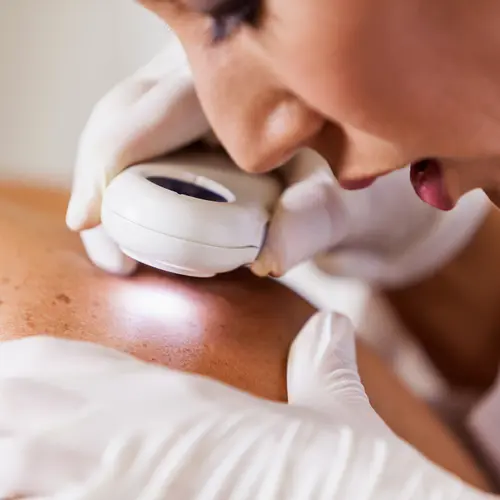As you go through treatment for metastatic melanoma, a type of skin cancer that has spread to other parts of your body, there are things you can do to give yourself some TLC every day.
Use these 9 ideas to help tame the side effects, boost your energy, and feel better.
1. Find Someone to Lean On
You’ll want to have people that you can turn to for support and comfort while you go through treatment. It’s normal to feel sad, angry, anxious, or other emotions during tough times.
Support comes in many forms. You can reach out to family, friends, or a therapist. Through an in-person or online group, such as those available through the American Melanoma Foundation or American Cancer Society, you can get advice from people going through the same thing.
2. Eat a Balanced Diet
Getting the right nutrients can raise your energy levels and help your body fight the cancer. Aim to get a mix of the following:
- Protein: You may need more protein during treatment to help prevent muscle loss, fight off infections, and heal. Look for lean sources, such as beans, fish, lean meat, chicken, pork, and nuts.
- Carbohydrates: Carbs deliver energy. Fiber-rich ones, such as whole grains, can also prevent constipation, a side effect of chemotherapy.
- Fruits and vegetables: Go for lots of colors and you’ll get a variety of vitamins, minerals, and antioxidants, all of which can boost your immune system.
- Healthy fats: Unsaturated fats, like those in vegetable oils, avocados, and nuts, help your body use certain nutrients.
- Water: You need to drink at least eight 8-ounce cups of liquid each day, but have more if you’re vomiting or have diarrhea.
If you want more tips, ask your doctor to recommend a dietitian who has experience working with people who have cancer.
3. Stay Active
A workout may be the last thing you feel like doing, but exercise helps you stay strong. It can also boost your energy levels, curbing the fatigue brought on by the disease. Being active is also a good way to ease the stress and anxiety you may feel.
Before you start an exercise program, talk with your doctor about how much activity and what type of activity is best for you. You can adjust what you do based on how you feel each day. But try to do something whenever you can.
4. Conserve Your Energy
Even though you slept soundly, you’re exhausted. Sound familiar? You may have cancer-related fatigue, a lack of energy caused by a number of things, such as:
- Chemotherapy: Some say they feel run down for a few days, while others say it remains during the whole treatment.
- Radiation therapy: The wiped-out feeling usually lasts 3 to 4 weeks after treatment, but can linger for up to 3 months.
You’ll need to plan, since you have a limited amount of energy. Prioritize what’s important, and ask for help or say no to other things. Take it easy when you need to.
5. Get a Good Night’s Rest
Many people with cancer regularly toss and turn through the night. If that’s you, try these tips to help you sleep more soundly:
- Go to bed and wake up around the same time each day.
- Use your bedroom only for sleep.
- Keep a journal by your bed to jot down any distracting thoughts.
- If you don’t fall asleep within 15 minutes, get up and do a soothing activity, like listening to relaxing music.
- If you have cancer-related night sweats, keep your bedroom slightly cool.
6. Prepare for Hair Loss
If you need chemo, you won’t shed those strands right away. It usually takes a few treatments for your hair to start to fall out slowly or in clumps.
To delay this process, you can wash your hair with a mild shampoo, skip perms or hair dyes, and use a soft-bristled brush. Or you may decide to cut your hair short or get your head shaved.
Scalp hypothermia (cold caps) treatment during chemo or radiation may help prevent hair loss.
Once you lose your hair, protect your scalp from the sun -- wear sunscreen, or a hat, scarf, or wig.
7. Tame Your Pain
Whether those aches are caused by the cancer or chemotherapy, you can get help for it.
Ask your doctor about medication, such as over-the-counter or prescription painkillers. You should also speak up if the pain doesn’t get any better or gets worse, or if the medication doesn’t work as much or as long as before.
8. Consider Compression Garments
If you get surgery to remove your lymph nodes, you may have swelling. Called lymphedema, this happens if lymph fluid builds up.
Compression garments can reduce the swelling. These tight sleeves or stockings, which fit over your arms and legs, help move the fluid back through your body. These items must fit properly. Ask your doctor if they would help you.
9. Consider Acupuncture
In this form of traditional Chinese medicine, a skilled practitioner uses very thin needles to promote the flow of energy.
Research shows that it can treat symptoms related to cancer care. For instance, a Harvard review of studies found that acupuncture can relieve the nausea and vomiting brought on by chemotherapy. It can also lessen the pain and fatigue caused by the disease.

